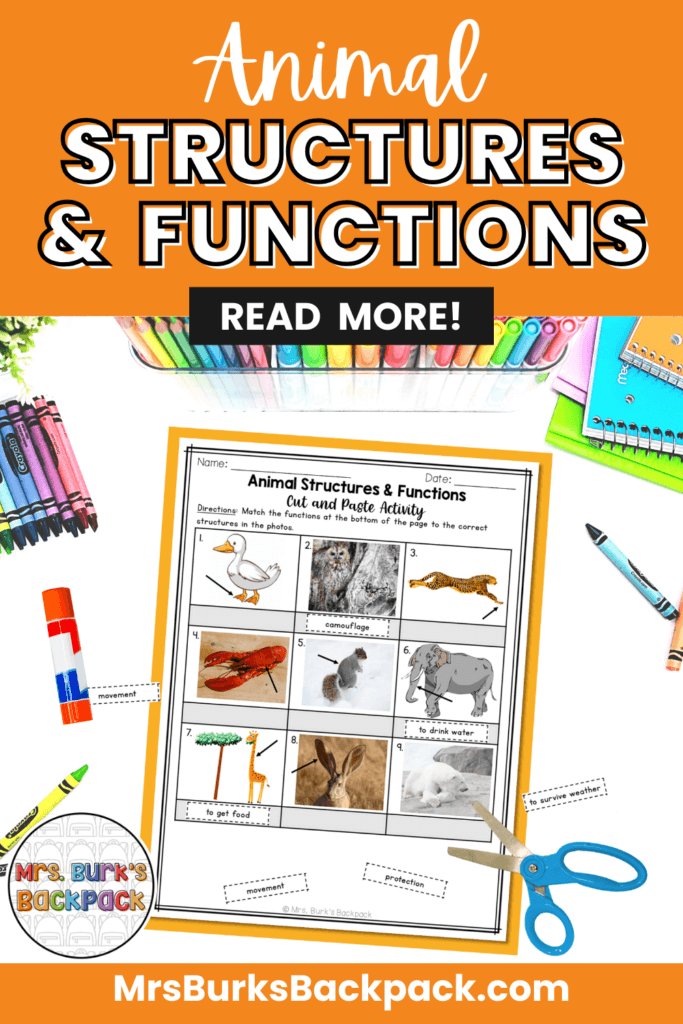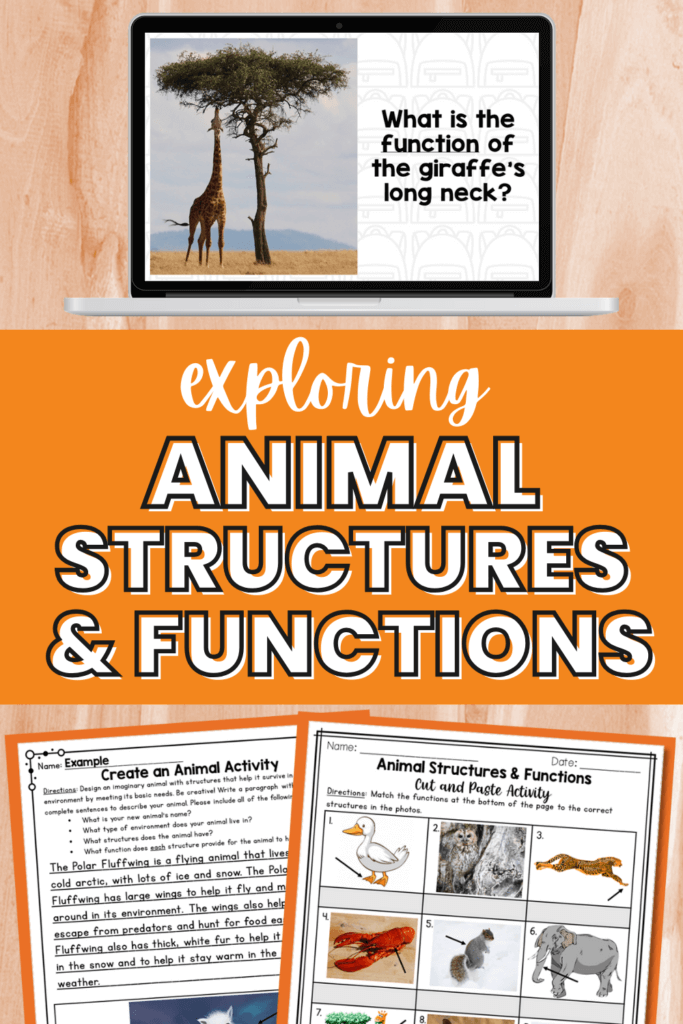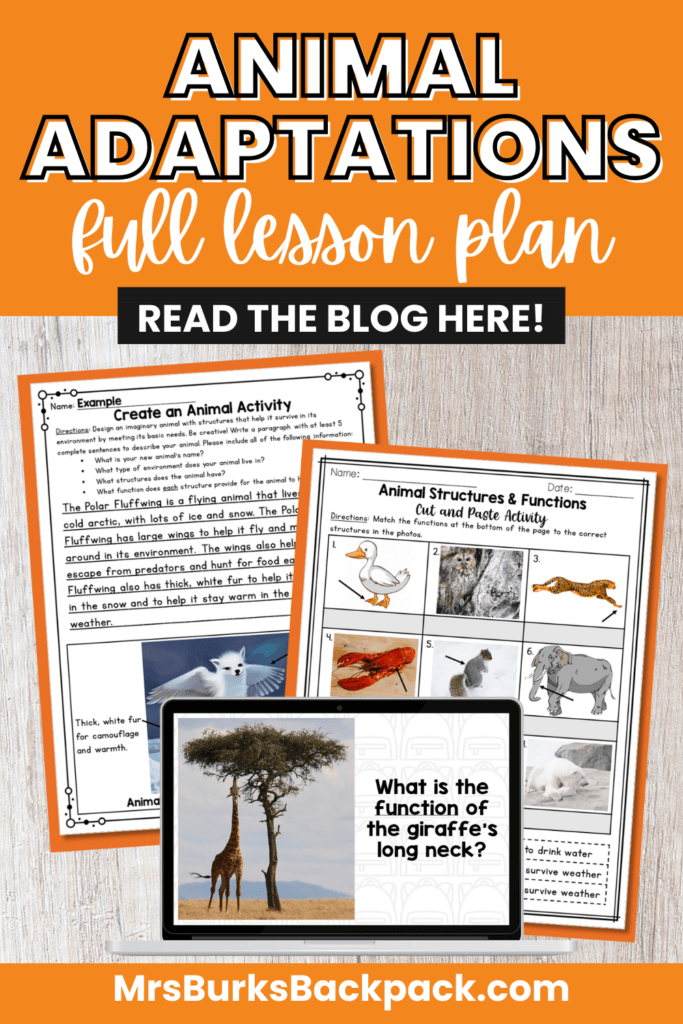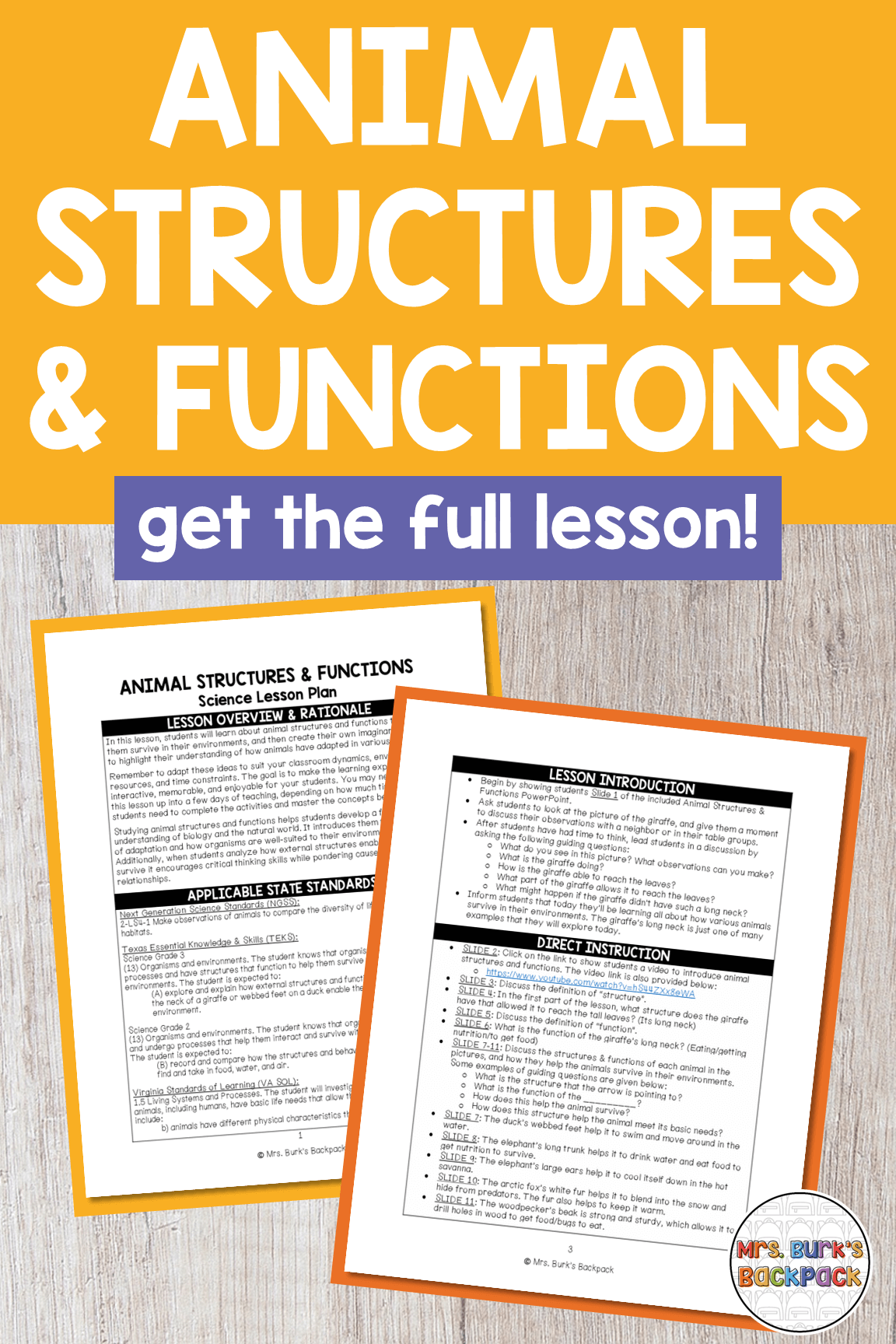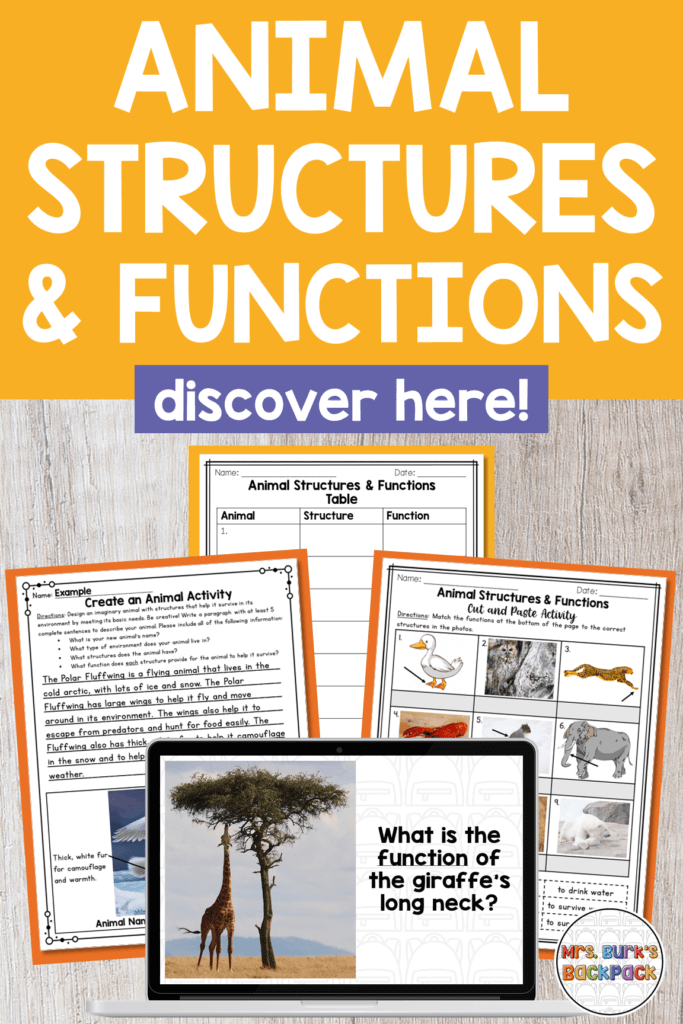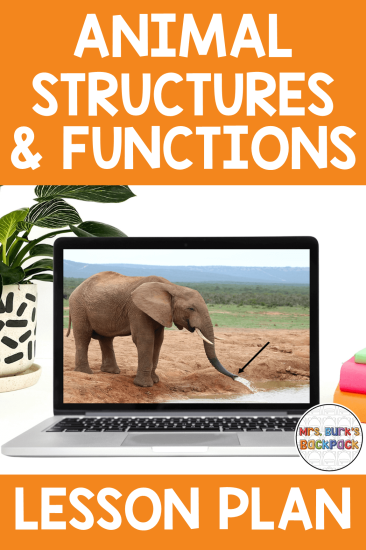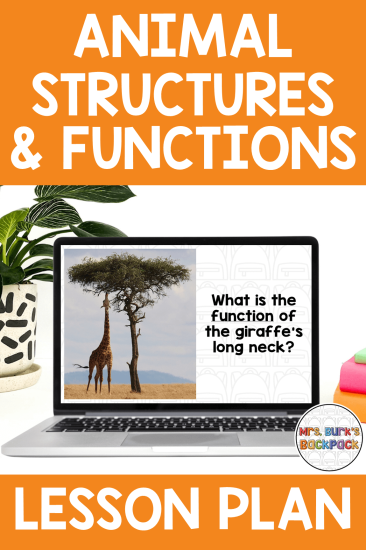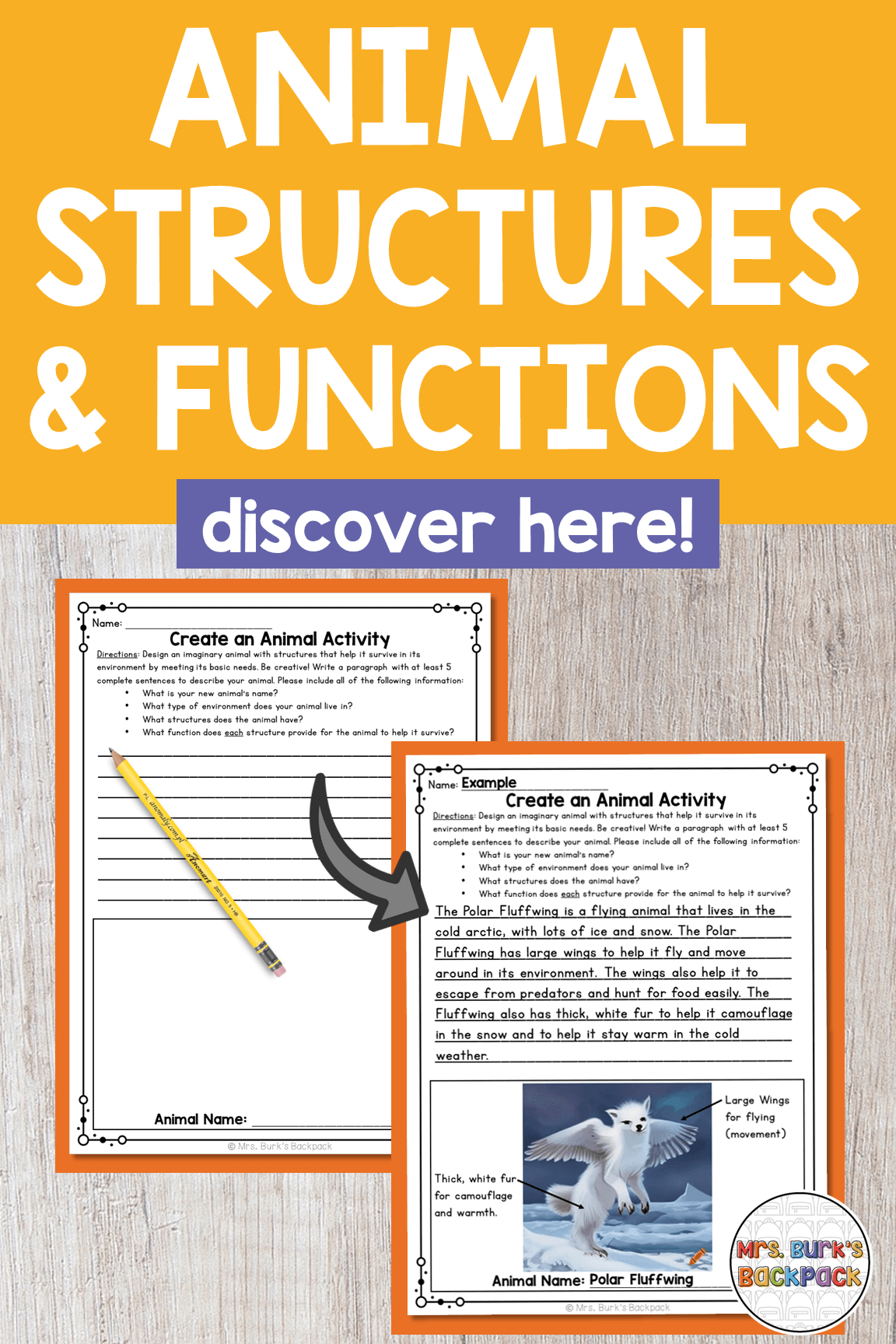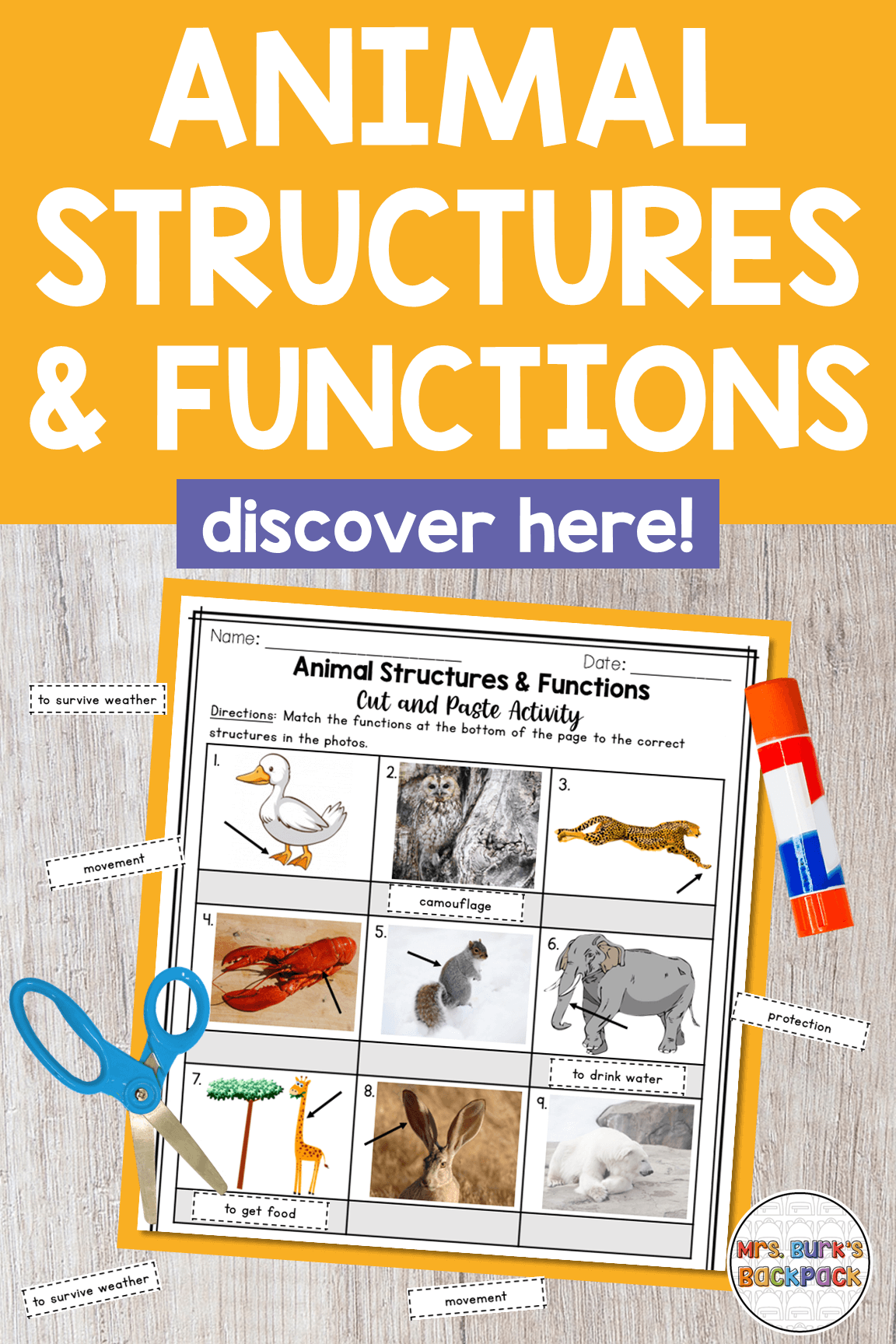
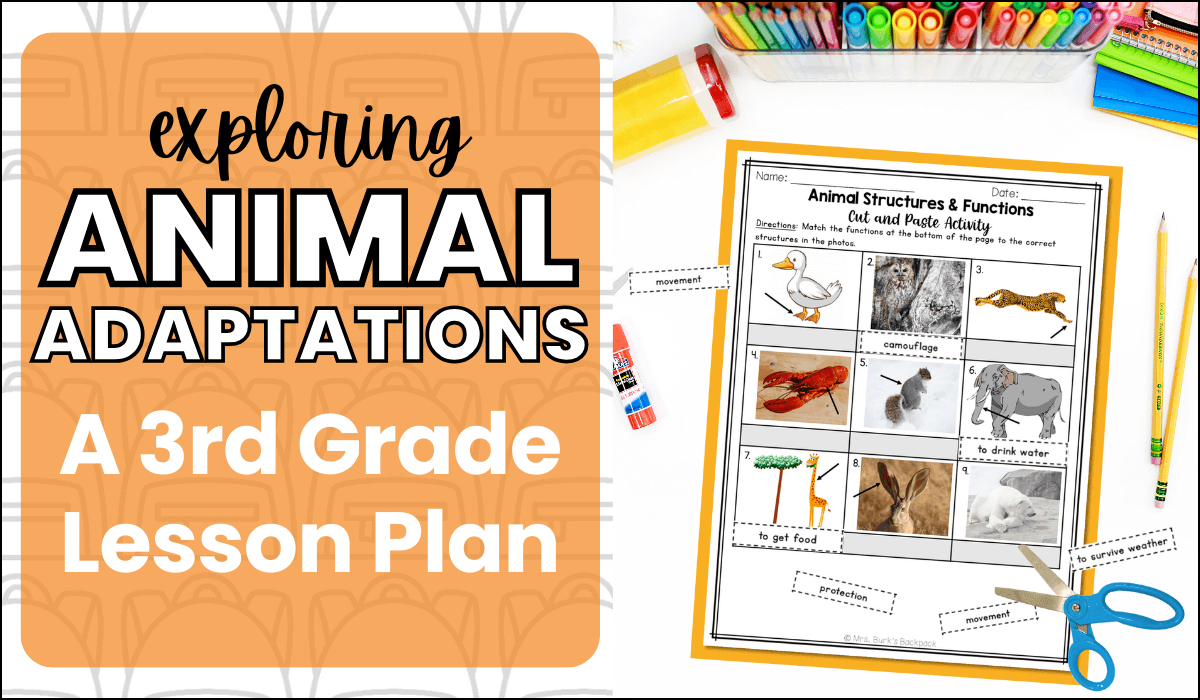
Exploring Animal Structures & Functions:
A 3rd Grade Lesson Plan
Picture this: a lesson plan that makes teaching animal structures and functions an absolute breeze. And here’s the best part, it’s all about sparking the imaginations of your fantastic 3rd graders!
In this blog post, we’ll dive into the details of an engaging lesson plan for teaching animal adaptations. From learning about how animals survive in their environments, to creating their own animals, your students will love this exciting lesson!
Teach Animal Structures & Functions Effectively with this Lesson Plan
In this lesson, students will learn about animal adaptations that help them survive in their environments, and then create their own imaginary animal to highlight their understanding of how animals have adapted to various habitats.
What Student Learning Objectives does this lesson plan cover to meet state science curriculum standards?
I can explore and explain how the physical characteristics, structures, and functions of animals help them survive in their environment by meeting their basic needs (NGSS 2-LS4-1 / Science TEKS Grade 3.13A / VASOL 1.5B).
The students will create their own imaginary animal with adaptations that enable it to survive in its environment (Science TEKS Grade 3.13A, Grade 2.13B / VASOL 1.5B).
Your students can record and compare how the structures and behaviors of animals help them find and take in food, water, and air (NGSS 2-LS4-1 / Science TEKS Grade 2.13B / VASOL 1.5B).
Your Step-By-Step Guide: Animal Adaptations Lesson Plan & Activities
With six detailed pages of teacher instructions, this lesson plan guides you step-by-step through the entire teaching process. Yep, everything you need for an engaging lesson is included! 🎉
What’s Inside?
- Lesson Introduction: Get students warmed up and excited to learn about animal adaptations!
- Direct Instruction: Discuss structures and functions for various animals, ensuring students have a basic understanding of this new vocabulary.
- Guided Practice: Engage students with a read-aloud as they identify many different animal characteristics that help them survive.
- Independent Practice: Students will create their own imaginary animals!
- Closure: Wrap up the lesson by having students share their animal creations with each other, and they’ll also participate in a fun song!
- Assessment: Evaluate students’ understanding with the provided rubric and answer keys.
- Extension Activities: Can’t get enough animal adaptations? These three exciting ideas will take learning even further!
Making Science Fun with the Animal Structures and Functions PowerPoint
Let’s take a virtual field trip with the Animal Structures & Functions PowerPoint Presentation! If you’re looking for kid-friendly explanations and examples of animal adaptations, this resource is perfect for you.
With 14 slides, this will be your trusty sidekick throughout the lesson as your class explores how animals adapt to survive in their habitats.
Your students will discover animal characteristics, from the neck of a giraffe to the webbed feet of a duck, to the beak of a woodpecker, and so much more! They’ll even investigate ways that animals camouflage to hide from predators.
This PowerPoint also includes several captivating links that whisk your students away to see animal adaptations in action. Plus, there’s an anchor chart that you can display in your classroom to remind students of what they’ve learned!
Hands-On Animal Adaptations Activities & Engaging Worksheets
This resource includes three activities/worksheets to get your students excited about structures and functions. Each activity includes a rubric and/or answer key to make grading a breeze!
- Animal Structures & Functions Table Worksheet – Students will fill out this table as you read the book, “Have You Ever Seen A Duck in a Raincoat?” during the lesson. If you don’t have a copy of the book handy – there’s a YouTube link included for the read-aloud. Plus, there are additional book suggestions if you need alternatives.
- Create an Animal Activity – Let your students’ imaginations run wild as they design an imaginary animal equipped with structures to survive in its environment. They’ll write a paragraph describing their animal, its habitat, and its structures/functions. Lastly, they’ll of course get to illustrate their creature and give it a unique name!
- Animal Structures & Functions Cut/Paste Activity – For even more practice, your class will solidify their understanding by matching the functions to the correct structures in the pictures.
Discovering Animal Structures & Functions: 27 Pages of Fun!
This resource is jam-packed with 27 total pages/slides of science excitement for your students. It’s all about animal adaptations, igniting creativity, and getting young minds excited about animal adaptations.
Do you have any questions, thoughts, or stories to share? Drop a comment below and let’s keep the conversation going! If you found this blog post helpful, why not pass it along to your teacher friends? Sharing is caring, after all. Happy teaching!
If you’d like to save these ideas about animal structures & functions for later on Pinterest, pin the images below.
